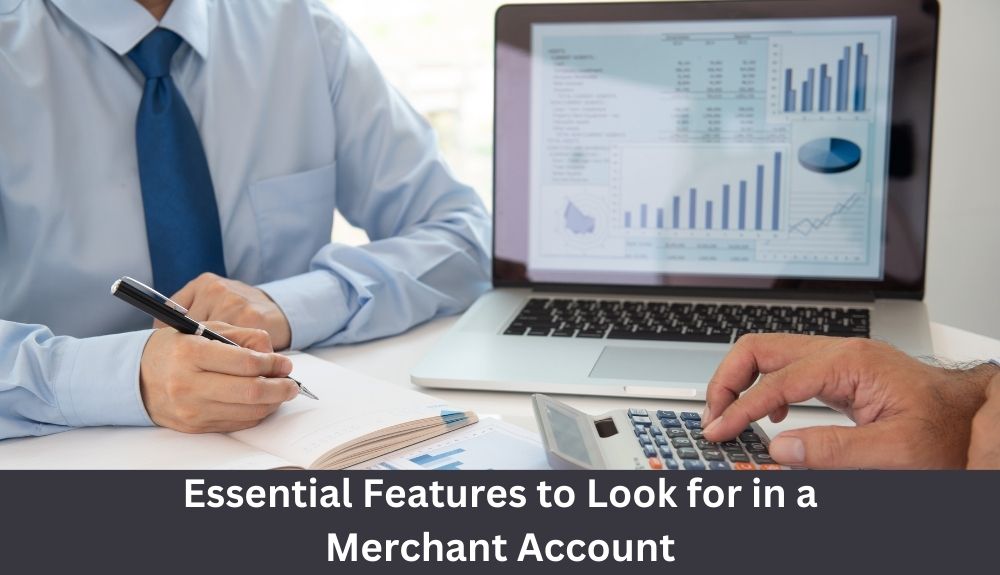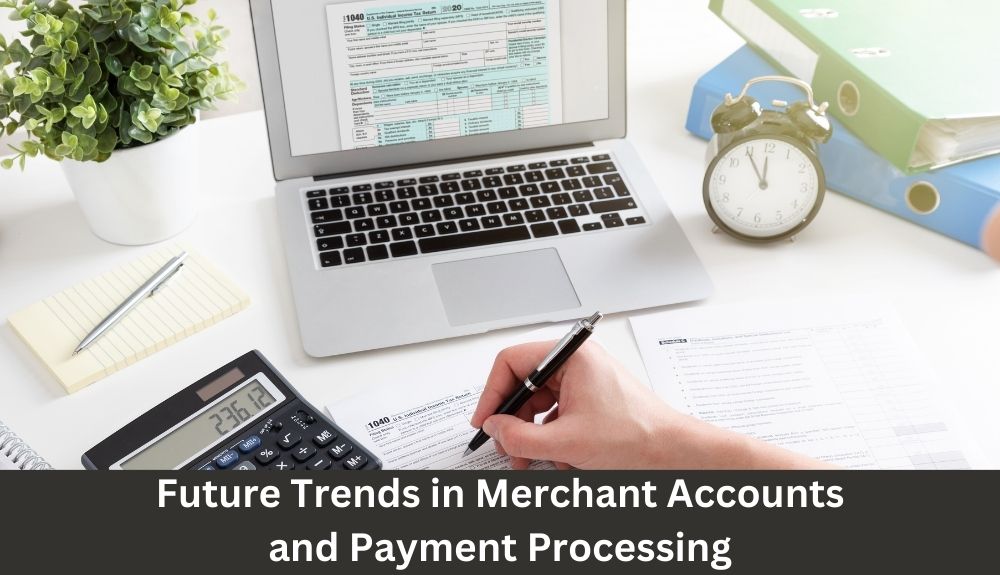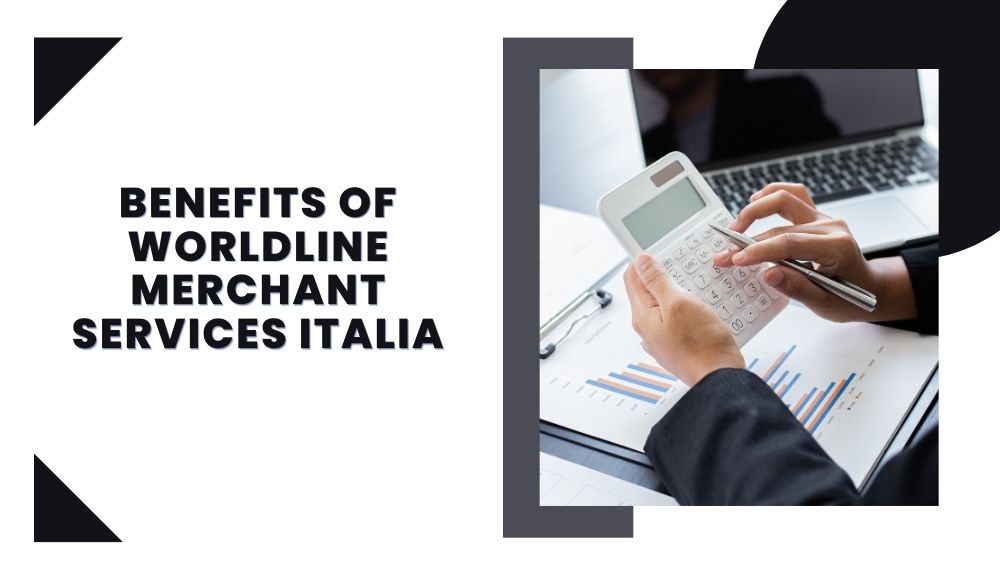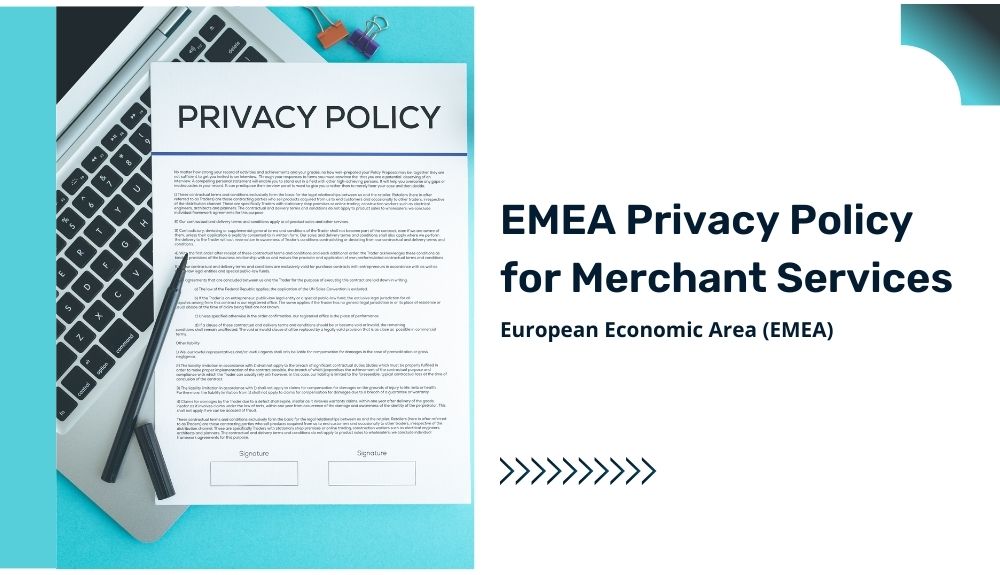On Your Way to CPA Greatness: Find the Perfect Merchant Account for Your Business
Are you on your way to CPA greatness but struggling to find the perfect merchant account for your business? Don’t worry, we’re here to help! Picture this: you’re a small business owner or entrepreneur with dreams of expanding your reach and maximizing your profits. But without a reliable merchant account, your goals may seem out of reach.
In this informative blog, we’ll discuss everything you need to know about finding the perfect merchant account for your business. From understanding the benefits of having a merchant account to exploring different types of accounts available, we’ve got you covered.
1. Understanding Merchant Accounts
A merchant account is a crucial component for any business that wants to accept credit card and debit card transactions. It serves as a gateway between the business and the payment processor, enabling the smooth and secure processing of card payments.
What is a Merchant Account?
A merchant account is a specialized type of bank account that allows businesses to accept card payments from their customers. It acts as an intermediary between the business, the customer’s card issuer, and the payment processor. When a customer makes a purchase, the funds are transferred from their card issuer to the merchant account, and then forwarded to the business’s regular bank account.
How Does a Merchant Account Work?
1. Application Process: To set up a merchant account, a business typically needs to complete an application through a merchant services provider. The application usually requires information about the business, its owners, and the expected volume of transactions.
2. Underwriting Process: Once the application is submitted, it goes through an underwriting process where the merchant services provider assesses the business’s risk profile. Factors such as the business’s industry, credit history, and financial stability are taken into consideration.
3. Integration and Setup: If approved, the merchant services provider will assist the business in integrating the necessary payment processing technology, such as card readers, online payment gateways, or mobile apps. They will also provide the necessary credentials to link the merchant account to the business’s existing infrastructure.
4. Transaction Processing: When a customer makes a payment using a credit or debit card, the payment information is securely transmitted to the payment processor, which then communicates with the associated merchant account. The funds are transferred from the customer’s card issuer to the merchant account, and ultimately settled into the business’s bank account.
Different Types of Merchant Accounts
1. Traditional Merchant Accounts: These are typically offered by banks or traditional financial institutions. They require a thorough underwriting process and are suitable for businesses with a stable credit history and low risk profile.
2. High-Risk Merchant Accounts: Certain industries, such as online gaming, adult entertainment, or CBD oil, are considered high-risk by merchant services providers. These businesses often face additional scrutiny and higher fees due to the increased risk associated with their operations.
2. Importance of Choosing the Right Merchant Account
In the world of business, especially for small businesses and accounting firms, the choice of a merchant account is crucial. A merchant account is an essential tool that allows business owners to accept credit and debit card payments from their customers. With the rise of online stores and the increasing preference for digital payments, having the right merchant account has become more important than ever before.
So, why is choosing the right merchant account so important? Let’s explore the key reasons:
1. Seamless Payment Processing: One of the primary reasons to choose the right merchant account is to ensure seamless payment processing. A reliable merchant services provider will offer a user-friendly payment system that integrates smoothly with your accounting systems and online store, making it easy for your customers to complete their transactions. This convenience can significantly enhance the overall shopping experience and encourage repeat business.
2. Security and Trust: When it comes to financial transactions, security is of utmost importance. By selecting a trustworthy and reputable merchant account provider, you can ensure that your customers’ sensitive payment information is protected. Look for a provider that adheres to industry-standard security protocols and offers robust encryption methods to safeguard cardholder data. This not only protects your customers but also enhances your business’s reputation as a safe and reliable place to shop.
3. Tailored Solutions: Every business is unique, and so are its payment requirements. The right merchant account allows you to customize your payment options based on your specific needs. Whether you run a traditional brick-and-mortar store or an online business, a merchant account provider should offer diverse payment solutions such as mobile apps, integrated POS systems, online invoicing, or card reader options. This flexibility empowers you to provide a smooth and convenient payment experience to your customers.
4. Competitive Pricing: As a business owner, profitability is always a top concern. Choosing the right merchant account means finding a provider that offers competitive pricing structures. Look for a merchant services provider that offers transparent pricing models without hidden fees. Consider factors such as transaction fees, monthly fees, and credit card processing fees to ensure you get the most value for your money.
5. Customer Support: Technical hiccups can occur at any time, and it is important to have reliable customer support when you need it. A reputable merchant account provider will offer prompt and knowledgeable customer support to address any issues that may arise. Whether it’s a problem with the payment processing system or any other merchant account-related inquiry, having responsive customer support.
3. Factors to Consider When Selecting a Merchant Account
When it comes to selecting a merchant account for your business, it’s important to carefully consider certain factors that can greatly impact your financial transactions and overall business operations. Here are key considerations to keep in mind:
1. Business Type and Risk Level:
Determine whether your business is classified as low-risk or high-risk. This categorization impacts the type of merchant account you should choose.
High-risk businesses, such as online stores or businesses in industries with higher chargeback rates, may require specialized accounts to accommodate their unique needs.
2. Payment Processing Options:
Consider the payment options you want to offer your customers. Evaluate whether you need to accept credit cards, debit cards, or both.
Ensure the merchant account you choose supports the payment methods relevant to your target audience.
3. Transaction Fees:
Different merchant service providers charge various transaction fees, which can significantly affect your bottom line.
Compare the transaction fees of different providers and consider the volume and value of your expected transactions to determine which pricing structure is most cost-effective for your business.
4. Payment Processing Security:
Ensure the merchant account provider adheres to stringent security measures to protect your customers’ payment information.
Look for features such as built-in fraud prevention tools, encryption, and compliance with industry standards like PCI DSS.
5. Customer Support:
Reliable and responsive customer support is crucial for resolving any issues that may arise during transactions.
Research the merchant service provider’s reputation concerning customer service, availability of support channels, and response times.
6. Integration and Compatibility:
Evaluate how the merchant account integrates with your existing payment systems, point-of-sale (POS) solution, or online store platform.
Choosing a merchant account that seamlessly integrates with your current systems will streamline your business operations.
7. Pricing and Contracts:
Carefully review the terms and conditions of the merchant account contract, especially regarding cancellation fees or binding agreements.
Look for transparent pricing with no hidden costs, and be wary of offers that appear too good to be true.
💡 key Takeaway: Selecting the right merchant account is essential for smooth and secure financial transactions. Consider factors such as your business type, payment processing options, transaction fees, security measures, customer support, integration, and pricing when making your decision. By carefully evaluating these factors, you can find the perfect merchant account that meets the unique needs of your business.
4. Different Types of Merchant Accounts
When it comes to choosing a merchant account for your business, it’s important to understand the different types available. Each type has its own features and benefits, catering to specific business needs. Below, we delve into four common types of merchant accounts:
1. Retail Merchant Accounts:
Retail merchant accounts are suitable for businesses with a physical storefront, such as retail shops, restaurants, or cafes. These accounts allow businesses to accept credit and debit card payments in person using a point of sale (POS) system or card reader. With competitive pricing, quick transaction processing, and minimal risk, retail merchant accounts offer convenience and efficiency.
2. E-commerce Merchant Accounts:
For businesses operating primarily online, an e-commerce merchant account is essential. This type of account enables online stores to accept credit and debit card payments securely through their website or mobile app. E-commerce merchant accounts often provide secure payment gateways, ensuring customer data is protected during transactions. With features like real-time transaction processing and customizable payment options, e-commerce merchant accounts streamline the online payment process.
3. High-Risk Merchant Accounts:
Certain industries or businesses with higher perceived risks, such as subscription-based services, travel agencies, or adult entertainment, may require a high-risk merchant account. These accounts cater to businesses operating in industries that are more prone to fraud or chargebacks. While high-risk merchant accounts often come with stricter underwriting criteria and higher transaction fees, they offer the opportunity for these businesses to accept credit card payments and grow their customer base.
4. Mobile Merchant Accounts:
With the rise of mobile payments, businesses can benefit from mobile merchant accounts. These accounts provide the flexibility to accept credit and debit card payments through mobile devices, such as smartphones and tablets. Mobile merchant accounts are ideal for businesses that frequently conduct transactions on the go, such as food trucks, delivery services, or trade show vendors. They often offer features like instant payment processing, mobile invoicing, and the ability to attach card readers to mobile devices.
💡 key Takeaway: Understanding the different types of merchant accounts available allows businesses to select the most suitable option based on their specific needs and industry requirements. Retail merchant accounts, e-commerce merchant accounts, high-risk merchant accounts, and mobile merchant accounts each offer unique features and benefits to enhance payment processing efficiency and cater to different business models.
5. Popular Merchant Services Providers in the Market
When it comes to finding the perfect merchant account for your business, it’s important to consider popular merchant services providers in the market. These providers offer a range of services and features that can meet the unique needs of small businesses, including accounting firms and CPA businesses. Here are some of the top providers worth considering:
1. Square
Square is a well-known name in the industry and offers a comprehensive suite of merchant services. They provide a free credit card reader and a user-friendly mobile app for easy payment processing on the go.
2. PayPal
PayPal is widely recognized as a reliable payment platform, offering services for both online and in-person transactions. They provide extensive support for small businesses and offer various payment options such as online invoicing and mobile payments.
3. Stripe
Stripe is a popular choice for businesses of all sizes, offering a range of payment processing solutions. They offer a developer-friendly platform with powerful features for customization and integration, making it ideal for online stores.
4. Shopify
Although primarily known as an ecommerce platform, Shopify also offers its own payment processing solution. It integrates seamlessly with Shopify’s online store system, providing an all-in-one solution for small businesses.
5. Authorize.Net
Authorize.Net provides a reliable and secure payment gateway that allows businesses to accept credit card payments online. They offer competitive pricing and a range of features for businesses that require a traditional merchant account setup.
These are just a few examples of popular merchant services providers in the market. Each provider has its own strengths and features that may align with your specific business requirements. It’s important to thoroughly research and compare various providers to find the one that best meets your needs.
6. Comparing Merchant Services Providers
When it comes to finding the perfect merchant account for your business, it’s essential to compare different merchant services providers. By evaluating various options, you can ensure that you’re getting the best fit for your specific needs. Here are some key factors to consider when comparing merchant services providers:
1. Pricing and Fees:
Monthly Fee: Look for a merchant services provider that offers competitive pricing tailored to your business’s size and transaction volume.
Transaction Fees: Compare the transaction fees charged by different providers to find the most cost-effective option.
Credit Card Processing Fees: Consider the percentage or flat rate charged for credit card processing and ensure it aligns with your budget.
2. Payment Options:
Card Payment: Check if the provider supports both credit card and debit card payments to accommodate your customers’ preferences.
Online Store: If you run an online store, make sure the provider offers seamless integration with popular e-commerce platforms.
Mobile Payment: Assess whether the provider has a mobile app or solution that enables convenient mobile payment processing.
3. Customer Support:
Availability: Look for a merchant services provider that offers round-the-clock customer support to address any concerns or issues promptly.
Responsiveness: Read reviews or seek recommendations to determine if the provider has a reputation for reliable and responsive customer service.
4. Compatibility:
POS Solution: If you have a brick-and-mortar store, ensure the provider’s merchant account can be easily integrated with your point-of-sale (POS) system.
Card Reader: Check compatibility with different card readers to choose the one that suits your business requirements.
5. Reputation and Reliability:
National Processing: Consider opting for a merchant services provider recognized at a national level for its reliability and trustworthiness.
Reviews and Testimonials: Look for feedback from other business owners to gauge the provider’s reputation and customer satisfaction.
💡 key Takeaway: When comparing merchant services providers, consider factors such as pricing and fees, payment options, customer support, compatibility, and reputation to find the perfect fit for your business.
7. Essential Features to Look for in a Merchant Account

Choosing the right merchant account for your business is crucial for smooth and secure payment processing. With so many options available, it can be overwhelming to determine which features are truly essential. To help you make an informed decision, here are the key features you should consider when selecting a merchant account:
1. Payment Processing Options:
Whether you run a small business or a large accounting firm, it’s important to choose a merchant account that accepts multiple payment options. Look for a provider that supports credit card, debit card, and online payment processing. This will ensure that your customers have convenient and flexible options to make payments.
2. Competitive Pricing:
While considering the merchant services provider, pay close attention to their pricing structure. Look for transparent and competitive rates that align with your business needs. Compare transaction fees and monthly charges among different providers to find the most cost-effective solution.
3. Reliable Customer Support:
In the dynamic world of payment processing, it’s crucial to have reliable customer support that can assist you with any technical or operational issues. Look for a merchant account provider that offers 24/7 support through multiple channels such as phone, email, and live chat. Quick and efficient support can save you time and keep your business running smoothly.
4. Secure Payment Solutions:
As a business owner, you need to prioritize the security of your customers’ payment information. Look for a merchant account that provides robust security measures such as encryption, tokenization, and fraud prevention tools. PCI compliance is also essential to ensure that your business meets industry standards for data protection.
5. Integration with POS Systems and Online Stores:
If you have an online store or use a point-of-sale (POS) system, ensure that the merchant account you choose offers seamless integration. This will streamline your payment process and eliminate the need for manual data entry, saving you time and reducing the potential for errors.
6. Mobile Payment Capabilities:
With the increasing popularity of mobile payments, it’s essential for your merchant account to support mobile payment options. Look for providers that offer mobile apps or solutions that allow customers to make payments using their smartphones or tablets. This feature is particularly important if you have an on-the-go business or frequently participate in trade shows or events.
7. Scalability and Flexibility:
Consider the future growth of your business when selecting a merchant account. Look for a provider that can accommodate your evolving needs and offers scalable solutions.
8. Understanding Merchant Account Fees and Pricing
When it comes to finding the perfect merchant account for your business, understanding the fees and pricing structure is crucial. This section will provide an in-depth look at the different fees you may encounter and how to evaluate the pricing options offered by merchant services providers. Let’s dive in!
1. Transaction Fees:
Transaction fees are charges imposed for each credit or debit card transaction processed through your merchant account.
These fees can vary depending on the provider and the type of transaction (in-person or online).
It is important to compare transaction fees among different providers to ensure you’re getting the most competitive pricing.
2. Monthly Fees:
Monthly fees are recurring charges for maintaining your merchant account.
These fees can cover various services, such as customer support, access to a mobile app or POS solution, and account management.
Consider your business needs and evaluate whether the monthly fee justifies the services provided.
3. Payment Processing Fees:
Payment processing fees are charges that are typically based on a percentage of each transaction or a flat rate.
Different providers may have different pricing models, so it’s essential to understand the processing fee structure.
Look for a provider with competitive pricing that suits your business’s transaction volume and average ticket size.
4. Additional Fees:
Some merchant services providers may have additional fees for specific services or circumstances.
These fees could include chargeback fees, PCI compliance fees, batch fees, or termination fees.
It’s crucial to read the fine print and fully understand any additional fees that may apply to your account.
💡 key Takeaway: Understanding the various fees and pricing structures associated with merchant accounts is essential for finding the right fit for your business needs. It’s not just about the lowest fees, but also about evaluating the overall value and services offered by providers.
9. Choosing the Right Merchant Account for Your CPA Business
When it comes to managing the financial aspects of your CPA business, choosing the right merchant account is crucial. A merchant account allows you to accept credit card and debit card payments from your clients, providing them with a convenient and secure payment option. However, with so many merchant service providers out there, it can be overwhelming to find the perfect fit for your specific needs. Here are some key factors to consider when choosing a merchant account for your CPA business:
1. Determine your business requirements: Before selecting a merchant account provider, it’s essential to understand your business requirements. Consider factors such as the volume of transactions, the types of payments you’ll be accepting (online or in-person), and the complexity of your billing process. This will help you find a merchant account provider that offers the right solutions for your specific needs.
2. Look for competitive pricing: As a CPA business owner, profitability is a top priority. Therefore, it’s crucial to compare pricing structures and transaction fees offered by different merchant service providers. Look for a provider that offers competitive pricing, transparent fee structures, and no hidden charges. This will help you minimize costs and maximize your revenue.
3. Evaluate the payment processing options: Depending on your business model, you may require different payment processing options. For instance, if you have an online store, you’ll need a merchant account provider that offers seamless integration with popular e-commerce platforms and secure online payment options. On the other hand, if you have a physical location, you’ll need a provider that offers reliable POS solutions and card reader compatibility.
4. Consider customer support: Running a CPA business can be demanding, and you need a merchant account provider that offers excellent customer support. Look for a provider that offers 24/7 customer assistance via multiple channels such as phone, email, and live chat. A dedicated support team will ensure that any technical glitches or payment-related issues are promptly resolved, minimizing disruptions to your operations.
5. Prioritize security: Handling sensitive financial information requires utmost security measures. Ensure that the merchant account provider you choose follows industry-standard security protocols, such as encryption and data tokenization, to protect your clients’ payment information. Additionally, look for providers who comply with Payment Card Industry Data Security Standard (PCI DSS) requirements to mitigate the risk of data breaches.
💡 key Takeaway: Choosing the right merchant account for your CPA business is crucial for seamlessly accepting credit card and debit card payments from your clients.
10. Steps to Sign Up for a Merchant Account
Signing up for a merchant account is an essential step in establishing your business’s ability to accept credit card and debit card payments. By having a merchant account, you open the door to a wide range of payment options for your customers, and you can seamlessly integrate these transactions into your accounting processes. In this section, we will guide you through the ten important steps to successfully sign up for a merchant account.
1. Determine Your Business Needs: Before diving into the sign-up process, it’s crucial to assess your specific requirements. Consider factors such as the volume of transactions, industry regulations, the need for mobile payment options, and whether you operate an online store or a physical location. Understanding your business needs will help you find the best merchant services provider that aligns with your requirements.
2. Research Merchant Services Providers: Take the time to research and compare different merchant services providers. Look for providers that offer competitive pricing, transparent terms, and excellent customer support. You can check their websites, read customer reviews, and explore their payment processing options to find the one that best suits your business.
3. Consider Payment Processing Options: As you evaluate merchant services providers, consider the payment processing options they offer. Some providers specialize in online payment solutions, while others focus on physical retail or mobile payment processing. Determine which options align with your business model and customer preferences.
4. Assess Fees and Charges: Merchant accounts often involve various fees, including transaction fees, monthly fees, and additional charges for specific services such as online invoicing or mobile app access. Carefully review the fee structure of each provider you are considering to ensure it is reasonable and compatible with your budget.
5. Review Security Measures: Data security is paramount when it comes to processing credit card and debit card payments. Look for merchant services providers that prioritize data encryption, secure payment gateways, and compliance with Payment Card Industry Data Security Standard (PCI DSS) requirements. Protecting your customers’ sensitive information should be a top priority.
6. Gather Required Documents: To complete the sign-up process, you will need to provide certain documents, such as your business details, bank account information, tax identification number, and possibly additional verification documents. Take the time to gather all the necessary paperwork in advance to expedite the application process.
11. Tips for Managing Your Merchant Account Successfully
Managing your merchant account effectively is crucial for the smooth operation of your business and ensuring a seamless payment process for your customers. Whether you are a small business owner or a CPA looking to optimize your payment system, here are some valuable tips to help you navigate the world of merchant accounts and make the most out of your payment processing:
1. Choose the Right Merchant Services Provider:
Research and compare different merchant services providers to find the one that best suits your needs. Consider factors such as pricing, customer support, and payment options offered.
Look for a provider that specializes in serving your industry or business type, as they may have specific features or expertise that can benefit you.
Consider the reputation and reliability of the provider. Look for testimonials or reviews to ensure they have a track record of delivering excellent service.
2. Understand the Fee Structure:
Familiarize yourself with the fee structure of your merchant account. This includes transaction fees, monthly fees, and any additional charges.
Be aware of any potential hidden fees or long-term contracts that may restrict your flexibility.
Take into account both the cost and the value for the services provided when evaluating different merchant services providers.
3. Optimize Security Measures:
Safeguard sensitive customer data by implementing robust security measures. This includes using encryption technology, maintaining PCI compliance, and regularly updating your systems.
Train your staff on how to handle sensitive information securely and be vigilant against potential fraud or data breaches.
Regularly review your systems and make necessary updates to stay ahead of emerging security threats.
4. Leverage Mobile and Online Options:
In today’s digital age, it’s crucial to offer mobile and online payment options to cater to an increasingly tech-savvy customer base.
Consider integrating a mobile app or providing a secure online store for your customers to make payments conveniently from anywhere.
Ensure that your chosen merchant services provider supports these options and offers a user-friendly experience for both you and your customers.
5. Monitor and Analyze Transactions:
Keep a close eye on your transaction history and analyze it regularly. This will help you identify any anomalies, detect potential issues, and gain valuable insights into customer behavior.
Use reporting tools provided by your merchant services provider to track sales, refunds, chargebacks, and other transaction details.
12. Maximizing the Benefits of Your Merchant Account
Having a merchant account can offer numerous benefits to your business, from streamlining payment processes to providing a wider range of payment options for your customers. To ensure that you’re getting the most out of your merchant account, it’s essential to understand how to maximize its benefits. Below, we’ll explore some key strategies and best practices to help you make the most of your merchant account.
1. Leverage Multiple Payment Methods
One of the primary advantages of having a merchant account is the ability to accept various payment methods. In addition to credit and debit cards, consider incorporating alternative payment options such as mobile payments, online invoicing, or even cryptocurrency. By accommodating different payment preferences, you can attract a wider customer base and improve their overall experience.
2. Optimize Your Pricing Structure
Merchant accounts often come with transaction fees or monthly fees, so it’s important to analyze and optimize your pricing structure. Compare different merchant service providers to find competitive pricing that aligns with your business needs. Consider factors such as transaction volume, average ticket size, and industry-specific requirements to ensure you’re getting the best value for your money.
3. Prioritize Security and Fraud Protection
With every transaction made through your merchant account, you need to prioritize security and fraud protection. Ensure that your chosen provider has advanced security measures in place, such as encrypted transactions and PCI compliance. Additionally, consider investing in fraud detection tools and regularly monitor your account for any suspicious activity. By safeguarding your customers’ information, you’ll maintain their trust and protect your business reputation.
4. Utilize Value-Added Services
Many merchant service providers offer value-added services that can enhance your overall business operations. For instance, they may provide you with a mobile app or a POS solution that integrates seamlessly with your merchant account. These tools can help you streamline processes, manage inventory, and provide better customer experiences. Research the value-added services available and choose those that align with your specific business needs.
5. Seek Excellent Customer Support
In the event of any issues or concerns regarding your merchant account, having access to reliable customer support is crucial. Look for a provider that offers excellent customer support, whether through phone, live chat, or email. Prompt and helpful assistance can save you time and prevent potential disruptions to your business operations.
💡 key Takeaway: Maximizing the benefits of your merchant account involves leveraging multiple payment methods, optimizing your pricing structure, prioritizing security and fraud protection, utilizing value-added services.
13. Ensuring Security and Fraud Protection with Your Merchant Account
Having a secure and reliable merchant account is crucial for any business, especially when it comes to processing credit card payments. With the increasing prevalence of online transactions, it is essential to prioritize security and fraud protection to safeguard your customers’ sensitive information and maintain their trust. Here are some key considerations to ensure the security of your merchant account:
1. PCI Compliance: Payment Card Industry Data Security Standard (PCI DSS) compliance is an industry-standard set of requirements designed to protect cardholder data. Ensuring your merchant account is PCI compliant means implementing necessary security measures, such as encryption, secure transmission, and regular security audits. This helps to minimize the risk of data breaches and fraud incidents.
2. Fraud Detection and Prevention: Protecting your business from fraudulent activities should be a top priority. Use fraud detection tools and services provided by your merchant services provider to identify potential fraud risks. These tools can track and analyze transaction patterns, detect suspicious behavior, and apply preventive measures to mitigate the risk of fraud.
3. Tokenization: Tokenization is a process that replaces sensitive cardholder data with a unique identifier called a token. By tokenizing the data, you can minimize the risk of exposing actual card numbers during transactions. This additional layer of security makes it harder for cybercriminals to access and misuse sensitive information.
4. Secure Payment Gateway: Ensure your payment gateway, the technology that securely processes credit card transactions, is reliable and provides a secure connection. Look for industry-standard encryption protocols like Secure Socket Layer/Transport Layer Security (SSL/TLS) to protect data transmitted between your website or app and the payment processor. Additionally, ensure your payment gateway has robust fraud protection features and filters to detect and prevent fraudulent activities.
5. Two-Factor Authentication: Implementing two-factor authentication adds an extra layer of security to your merchant account. This authentication method requires users to provide two different forms of identification, such as a password and a unique, temporary code sent to their mobile device. Two-factor authentication provides an added level of protection against unauthorized access to your merchant account.
6. Regular Account Monitoring: Keep a close eye on your merchant account activity by regularly monitoring transactions, refunds, chargebacks, and any suspicious patterns.
14. Future Trends in Merchant Accounts and Payment Processing

As technology continues to advance at a rapid pace, the world of merchant accounts and payment processing is also evolving. Stay ahead of the game by understanding the future trends that will shape the industry. Here are some key developments to keep an eye on:
1. Mobile Payments: With the increasing popularity of smartphones and mobile devices, mobile payment solutions are becoming more prevalent. Customers now expect the convenience of paying with their phones, whether it’s through mobile wallets like Apple Pay or dedicated apps provided by payment processors.
2. Contactless Payments: In a post-pandemic world, contactless payments are gaining significant traction. Customers prefer the ease and safety of tapping their cards or using their phones for purchases. Payments made through Near Field Communication (NFC) technology are becoming the go-to option for many businesses.
3. Blockchain Technology: The rise of blockchain technology is revolutionizing various industries, and payment processing is no exception. With its decentralized and secure nature, blockchain has the potential to streamline transactions, reduce fees, and enhance security in merchant accounts.
4. AI-Powered Fraud Detection: Fraud remains a significant concern in the payment processing landscape. However, with advancements in artificial intelligence (AI), businesses can leverage machine learning algorithms to detect and prevent fraudulent transactions in real-time, minimizing losses and ensuring the security of merchant accounts.
5. Subscription-Based Business Models: Subscription-based services are becoming increasingly popular across various sectors. Merchants are adopting recurring billing models, offering subscriptions to their customers for enhanced convenience. These models require reliable and flexible payment processing solutions to handle recurring billing cycles seamlessly.
6. Voice-Activated Payments: With the rise of virtual assistants and smart speakers, voice-activated payments are gaining traction. Customers can now make purchases simply by speaking a command, making the checkout process faster and more convenient.
7. Integration of Big Data: The analysis of big data plays a crucial role in modern business operations. Payment processors are utilizing big data to gain insights into customer behavior, transaction patterns, and financial trends. Merchants can leverage this information to make informed decisions and optimize their merchant accounts.
8. Enhanced Security Measures: As cyber threats become more sophisticated, payment processors are investing heavily in advanced security technologies. Encryption, tokenization, and multi-factor authentication are just a few measures being implemented to protect sensitive customer data and ensure the integrity of merchant accounts.
15. Resources and Support for Merchant Account Users
Once you have chosen the perfect merchant account for your business, it’s important to have access to reliable resources and support. Whether you’re a small business owner or an accounting firm, having access to helpful tools and assistance can make a world of difference in managing your payment processing needs. In this section, we will explore some of the key resources and support options available to merchant account users.
1. Customer Support: One of the most crucial aspects of a merchant services provider is their customer support. Look for a provider that offers 24/7 customer service, so you can reach out for help at any time. It’s essential to have a dedicated support team that is knowledgeable and responsive to any questions or issues you may encounter.
2. Online Knowledge Base: Many merchant service providers have comprehensive online knowledge bases or FAQs where you can find answers to commonly asked questions. These resources often cover topics such as account setup, transaction management, and troubleshooting. Take advantage of these self-help resources to quickly find solutions to common issues.
3. Mobile App: A mobile app can be a game-changer for busy business owners on the go. Look for a provider that offers a mobile app with features such as transaction monitoring, reporting, and even the ability to accept payments on your mobile device. This allows you to stay connected and manage your merchant account seamlessly from anywhere.
4. Educational Resources: To stay updated on the latest trends and best practices in the payment processing industry, look for a merchant service provider that offers educational resources. These resources can include blog articles, whitepapers, webinars, and guides that provide valuable insights into optimizing your payment processing strategy.
5. POS Solutions: If you have a physical store, a point-of-sale (POS) system is essential. Some merchant service providers offer their own POS solutions that integrate seamlessly with their payment processing services. These solutions often include features like inventory management, sales analytics, and customer relationship management, making it easier to run your business smoothly.
6. Community Forums and User Groups: If you prefer learning from fellow business owners and sharing experiences, look for merchant service providers that offer community forums or user groups. These platforms allow you to connect with other users, ask questions, and gain insights from their experiences. It’s a great way to learn from peers and find inspiration for improving your own payment processing operations.
💡 key Takeaway: Having access to reliable resources and support is essential for maximizing the benefits of your merchant account.
Conclusion
In conclusion, finding the perfect merchant account for your business is crucial for your success as a CPA. By understanding your specific needs and requirements, conducting thorough research, and evaluating various options, you can ensure that you make an informed decision. Consider factors such as transaction fees, payment processing speed, security measures, and customer support when choosing a merchant account provider. Look for providers that offer customizable solutions to meet your unique business needs. To get started on your journey towards CPA greatness, take advantage of the free consultation offered by XYZ Merchant Services. Our team of experts is ready to help you find the perfect merchant account that will streamline your payment processes and elevate your business.











